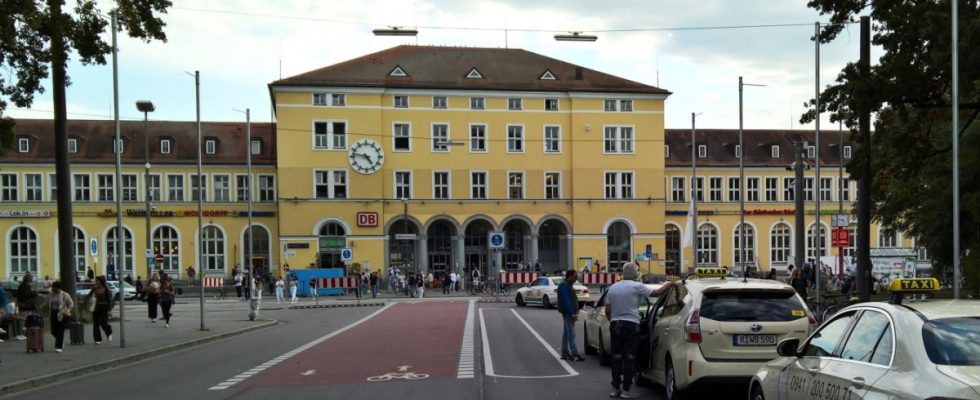Regensburg main station, a place of fear that you have to warn your daughters about. The adjacent park is virtually impossible to cross alone. You could get the impression when you read the headlines that have recently appeared about Regensburg’s train station district. Even before this Wednesday, when the police presented their figures on actual crime, things had to be put into perspective. The excitement was triggered by reports of two alleged rapes in the area around the train station. It is now clear that one of them did not take place. It allegedly happened in broad daylight and therefore caused particularly great horror. The second rape was apparently initially a matter of procuring prostitution. According to police, a woman offered sexual services to get drugs, but the dealers then went further than agreed.
So the problem is not as big as some headlines suggest. On this sunny Wednesday, it is easily possible for a woman to walk through Fürst-Anselm Park at lunchtime without being harassed. Things should be different at night. Because there is a problem, as the figures presented by the Regensburg South police station on Wednesday show, and not just in the train station district. First of all, more crimes were committed in Regensburg in 2023 than in the past ten years, an increase of 15 percent. Compared to other large cities such as Munich, Regensburg has long had the most crimes per 100,000 inhabitants, according to Gerhard Roider, head of the Regensburg South Police Department.
What is new is the burden of intensive offenders from Tunisia. Since they have been concentrated in the “Anchor Center” in Regensburg, the number of Tunisian suspects has increased. Overall, they account for 14.5 percent of all crimes, while their share of Regensburg’s population is only 0.14 percent. It is a “real problem group,” says Roider. This apparently involves a few intensive offenders who mainly committed shoplifting, pickpocketing and drug crimes. Roider doesn’t talk about organized crime, but there are structures behind it.
Tunisians make up almost half of the non-German suspects, mostly men between the ages of 18 and 40. Among the suspects prosecuted for robbery, 22 percent were Tunisians. They committed a quarter of all shoplifting, and 13 of 206 sexual crimes were committed by Tunisian citizens. This is primarily sexual harassment, not rape. At the beginning of 2024, Regensburg set up a special unit to speed up the prosecution of intensive offenders. For example, multiple perpetrators of the “anchor facility” can also be taken into custody for minor offenses such as shoplifting. A measure that, according to Roider, is having an impact. So far 46 have been arrested, 41 of them were Tunisians, according to Roider.
And the train station? Here, too, according to Roider, the crime rate is “by far the highest in a multi-year comparison that has ever been recorded in Regensburg”. A second drug scene has emerged in Fürst-Anselm-Park at the train station, which is more aggressive than the current one. Dealers would actively approach passers-by to see if they wanted to buy something, couriers would fetch their goods from underground bunkers, and the police found a total of eleven such hiding places. Compared to the previous year, crimes in the Bahnhofsviertel increased by 45 percent to 1,081 cases in 2023. This is mainly due to drug and brutality crimes such as bodily harm or robbery. The latter rose from 92 to 148 cases, drug offenses almost doubled from 248 to 473 cases. In the area of theft, Roider cited an increase of 62 percent and there was also an increase of 66 percent in sexual crimes.
However, if you look at the absolute numbers, a different picture emerges. There were a total of 15 sexual crimes in 2023, including three rapes, but the majority were in the area of sexual harassment. Among the suspects were three Tunisians who are accused of sexual assault and harassment.
In order to ensure greater security again, the police, in addition to the special unit for intensive offenders, have significantly increased their presence in Fürst-Anselm-Park. Video surveillance is to be expanded in the future, and there are also various actions by the police and the city, such as information stands that are intended to attract a different audience or park benches that are to be firmly anchored.

